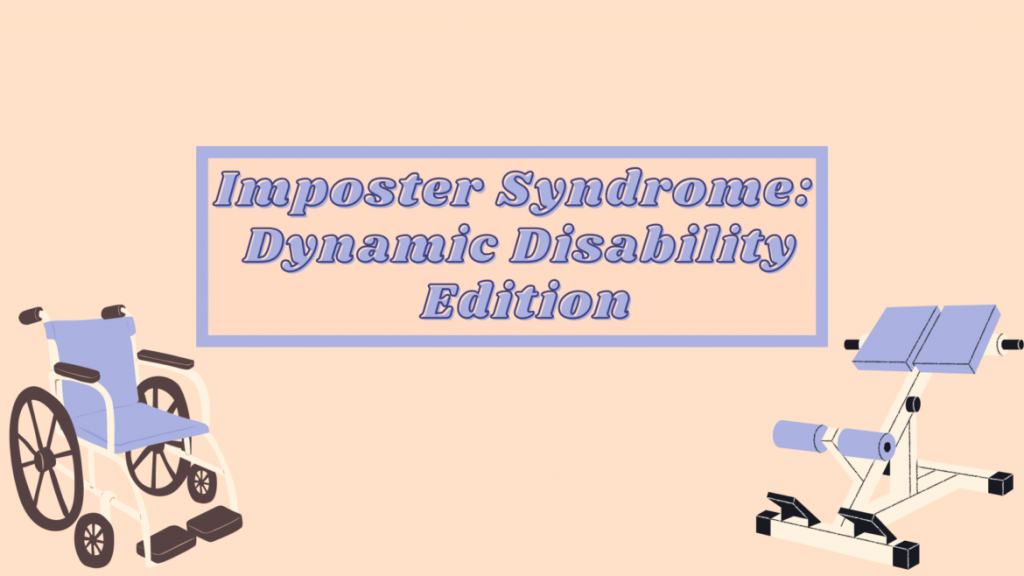Written by Joanna Hanaka September 6, 2020 The Blog can be read on her site – joannanobanana.com
The author Joanna Hanaka explains in her Blog a little about what Chronic Illness feels like –

What is imposter syndrome?
Imposter syndrome is a psychological pattern in which a person doubts themselves. Usually, this refers to someone doubting their success and fearing being exposed as a “fraud.”
What is a dynamic disability?
A dynamic disability, as coined by Brianne Benness of No End in Sight, is a disability which fluctuates in severity from one moment onto the next.
For many of us with chronic illnesses, we have moments, days, weeks, etc. where we feel capable of performing certain tasks. However, there are also times when we feel physically incapable of performing those same tasks. Our capabilities are dynamic. They’re constantly changing.
It’s difficult to attempt to predict the severity of our symptoms in advance. One small change in our environment or in our bodies can quickly change our level of what we can do and to what extent.
The relationship between dynamic disability and imposter syndrome:
Being dynamically disabled can cause some disabled people to feel as if they’re a “fraud” for calling themselves disabled. This tends to occur when there is a moment or phase of the disabled person feeling capable of doing tasks. They don’t feel as limited by their body, so they begin to question if they can even use the word “disabled” to describe themselves. Can they? Absolutely! A dynamically disabled person is still disabled even on their “good” days. There is no test or check list that is required to call yourself disabled. If you have days of pain in any way (such as headaches, joint pain, muscle pain, etc.) but you don’t feel that pain on other days, then you may have a dynamic disability. If you have very poor mental health days but feel great on other days, then you may have a dynamic disability. If you can dance sometimes but other times you can’t get out of bed, then you may have a dynamic disability. There are many different ways in which a dynamic disability presents itself. If you feel that this term of “dynamic disability” describes you (or may potentially describe you), then it’s a term that you should consider using.
There is an entire disabled community that’s open to you no matter if you use that term or not. Calling yourself “disabled” makes it easier to find other folks who are struggling with the same or similar issues as the ones that you’re experiencing.
Personally, just learning about terms such as dynamic disability and invisible disability (a disability which cannot be easily seen physically) has been extremely helpful in finding “disabled” as the proper term to describe myself. If you’re dynamically disabled, please remember that there is a term for you. You and your experiences as a disabled person are valid!

Please follow the author Joanna at the links below



